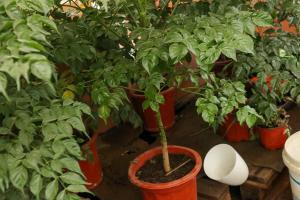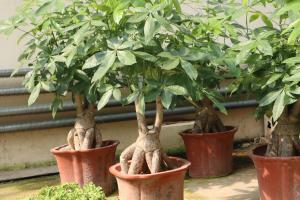Can I recycle black plastic plant pots?
Black plastic plant pots are a common addition to any gardener's collection of supplies, but what happens to them when they are no longer needed? Can they be recycled? The answer is not straightforward.
The problem with black plastic plant pots
Black plastic plant pots are problematic when it comes to recycling. The black pigment used in making these pots is often made of carbon black, which makes it difficult for recycling plants to identify and sort them by their resin type. As a result, many recycling facilities either cannot accept them or consider them "contamination" when mixed with other plastics.
Additionally, many black plastic plant pots are not made from just one material. Instead, they often contain a mix of plastic resins and pigments, making it even harder for recyclers to separate and process them effectively.
Recycling options for black plastic plant pots
Despite the difficulties in recycling black plastic plant pots, there are still options available for those who want to dispose of them sustainably.
Firstly, check with your local recycling facilities to see whether they accept black plastic plant pots. Some facilities may have the infrastructure to sort and process these pots, while others may not.
If your local recycling facility does not accept black plastic plant pots, do not include them in the recycling bin. Avoiding contamination of other plastics is essential to maintaining a recycling facility's efficiency.
You can also consider repurposing your black plastic plant pots around your garden. Use them to start new seedlings or to repot other plants - this will save you the expense of buying new pots and prevent waste.
Alternatives to black plastic plant pots
If you are still concerned about the environmental impact of black plastic plant pots, there are alternatives available.
One option is to opt for biodegradable plant pots made from materials like peat, coconut coir, or even pressed paper pulp. These pots can break down in compost piles or in the ground, making them a more sustainable option for home gardeners.
Another option is to choose lighter-colored plastic plant pots, such as white or terracotta. These colors are easier for recycling facilities to identify and sort, increasing the chances of them being recycled successfully.
Conclusion
Black plastic plant pots are easy to come by and often end up in the bin when they are no longer needed. However, their difficult recyclability means that they are not always the best choice for environmentally-conscious gardeners. By checking with local recycling facilities, repurposing them in the garden, or choosing more sustainable alternatives, we can all play a role in reducing waste and protecting our planet.

 how many times do yo...
how many times do yo... how many planted tre...
how many planted tre... how many pine trees ...
how many pine trees ... how many pecan trees...
how many pecan trees... how many plants comp...
how many plants comp... how many plants can ...
how many plants can ... how many plants and ...
how many plants and ... how many pepper plan...
how many pepper plan...
































